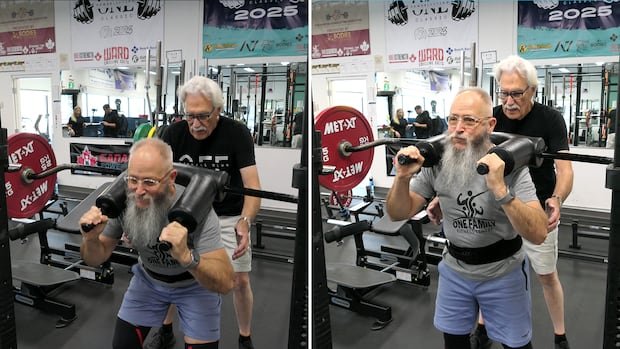Ken Martens, aged 79, applies chalk to his hands before starting his workout routine. He lifts 230 lbs during deadlifts and benches around 120 lbs. Despite facing a near-death experience last year, Martens has made a remarkable recovery. Following multiple blackouts and falls, he was admitted to the hospital in February 2024, where he was diagnosed with heart failure. Subsequently, he received a pacemaker that provides continuous electrical stimulation to his heart. Engaging in regular exercise and social interactions at Winnipeg’s One Family Fitness Centre has rejuvenated him, and he now describes his health as better than ever.
Research indicates that Martens’ experience is not uncommon among older individuals. According to a recent Canadian study published in the peer-reviewed journal PLOS One, approximately a quarter of older adults can recover from periods of poor health. Contrary to the belief that aging inevitably leads to disability and death, the study’s co-author, Esme Fuller-Thomson, highlights that many individuals can regain optimal well-being after facing health challenges.
The study monitored over 8,300 elderly Canadians with various health conditions, such as mental health issues, physical ailments, or chronic pain, for three years. The findings revealed that those who maintained physical activity, stayed socially connected, and had good psychological well-being were more likely to bounce back from illness or poor health.
Mabel Ho, a research affiliate at the University of Toronto’s Faculty of Social Work and co-author of the study, finds the results encouraging and inspiring. She emphasizes that individuals of any age can take steps to enhance their health and overall quality of life by staying physically active, avoiding obesity, refraining from smoking, and prioritizing good sleep.
The study also underscores the importance of psychological and social support in aiding older adults’ recovery from health challenges. Loneliness and lack of strong relationships can hinder the recovery process, with less than one in ten individuals without robust social connections showing signs of improvement. Fuller-Thomson expresses concern for retirees and widowed individuals, who often struggle due to the loss of social ties and companionship.
Ensuring access to psychological assistance can be beneficial for individuals navigating difficult periods. Psychological interventions like cognitive behavioral therapy have proven effective in addressing issues such as depression, anxiety, and insomnia among older adults.
Dr. Samir Sinha, a geriatrician at Sinai Health in Toronto, emphasizes the resilience of older individuals and the importance of offering support to aging loved ones. He encourages families to check in on older relatives during Thanksgiving, providing reassurance and assistance to combat feelings of isolation and demoralization.
Thanksgiving serves as an opportune time to reconnect with older family members, offer encouragement, and remind them that they are valued and supported. It is a chance to foster hope and positivity among older adults, showcasing that recovery and wellness are achievable goals regardless of age.


